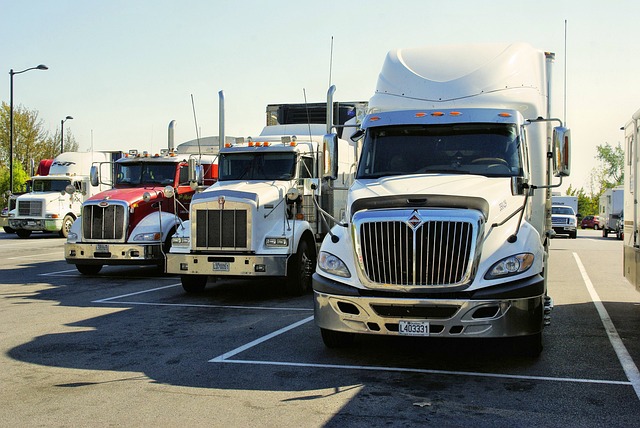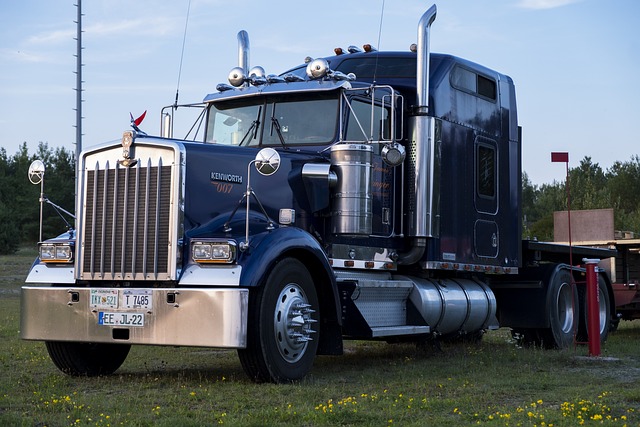Solar charging solutions for truck batteries harness renewable energy to extend battery life and reduce environmental impact, offering a cost-effective and eco-friendly alternative to traditional charging methods. These systems use photovoltaic panels to convert sunlight into electrical energy, which can maintain truck batteries' optimal performance without the need for engine operation. Monocrystalline solar panels are preferred for their high efficiency and durability, while flexible options ensure minimal impact on aerodynamics and weight. The integration of these systems contributes to sustainability, operational efficiency, and cost savings for fleets, particularly in remote areas where traditional power sources are unreliable. Monocrystalline silicon solar panels, charge controllers, advanced battery management systems, and power inverters work synergistically to enhance the longevity of truck batteries and reduce reliance on diesel generators or external charging. Real-world examples show that these solutions can cut fuel consumption and emissions, save money by cutting downtime for recharging, and mitigate battery wear, proving their practicality in modern fleet management.
Exploring the integration of solar energy into heavy-duty vehicle maintenance, this article delves into the transformative role of solar charging solutions for truck batteries. Solar technology presents a sustainable and cost-effective approach to extending the lifespan and performance of truck batteries. We will dissect the essential components of a solar charging system tailored for trucks, compare various types of solar panels suitable for this purpose, and provide a blueprint for designing an efficient setup that caters to the unique demands of heavy-duty vehicles. Additionally, we’ll explore real-world applications through case studies, highlighting the benefits and best practices for integrating these systems into truck operations. Join us as we chart the path toward greener, more reliable power solutions for the transportation industry.
- Understanding the Role of Solar Charging in Truck Batteries
- The Benefits of Solar Power for Truck Battery Maintenance
- Key Components of a Solar Charging System for Trucks
- Types of Solar Panels Suitable for Truck Battery Charging
- Designing an Efficient Solar Charging Setup for Heavy-Duty Vehicles
- Best Practices for Integrating Solar Chargers with Truck Batteries
- Real-World Applications and Case Studies of Solar Charging Solutions for Trucks
Understanding the Role of Solar Charging in Truck Batteries

Solar charging solutions for truck batteries represent a sustainable and cost-effective approach to maintaining optimal battery performance. Unlike conventional charging methods that rely heavily on alternators and generators, solar chargers harness renewable energy from the sun to recharge truck batteries. This approach not only extends the lifespan of the batteries but also reduces reliance on fossil fuels. Solar charging systems are equipped with photovoltaic panels that convert sunlight into electrical energy, which is then used to charge the truck’s battery. The advantage of this system lies in its ability to provide a consistent trickle charge over extended periods, ensuring the battery remains fully charged and ready for use without the need to run the engine solely for charging purposes. This not only saves on fuel but also minimizes wear and tear on the vehicle’s charging systems. By integrating solar charging solutions, fleets can significantly improve their operational efficiency while contributing to a more sustainable transportation ecosystem. It’s imperative for truck owners and operators to understand the benefits of these systems and consider them as part of their maintenance strategies to enhance the performance and longevity of their truck batteries.
The Benefits of Solar Power for Truck Battery Maintenance

Solar power presents a sustainable and efficient solution for maintaining truck batteries, offering several benefits over traditional charging methods. Unlike conventional charging systems that rely on shore power or gasoline-powered generators, solar panels can harness energy from the sun even in remote locations where trucks often operate. This autonomy ensures that truck batteries are charged consistently, which is crucial for their longevity and performance. Solar charging solutions mitigate the wear and tear that batteries endure from being frequently discharged and recharged in quick successions, a common scenario with internal combustion engine trucks.
Furthermore, solar panels are versatile and can be integrated into various parts of a truck, such as the roof or hood, maximizing the availability of sunlight for energy generation. The use of solar charging systems can significantly reduce reliance on fossil fuels, aligning with eco-friendly practices that many transportation companies are adopting to lower their carbon footprint. Additionally, these renewable energy solutions minimize the operational costs associated with battery maintenance and replacement over time. By investing in solar charging solutions for truck batteries, fleets can enjoy a sustainable power source that supports energy independence, cost savings, and environmental responsibility.
Key Components of a Solar Charging System for Trucks

Solar charging solutions for trucks represent a sustainable and cost-effective approach to maintaining optimal battery health on the road. These systems harness solar energy, which is abundant and clean, to charge truck batteries, reducing reliance on conventional charging methods and fossil fuels. A typical solar charging system for trucks comprises several key components: photovoltaic (PV) panels, a charge controller, an inverter (if AC power is needed), batteries, and cables or wiring to connect each part.
The PV panels are the heart of the system, capturing sunlight and converting it into electrical energy. The efficiency and size of the PV panels determine the amount of energy that can be harvested and thus influence the charging rate and autonomy of the system. A charge controller is crucial for regulating the flow of electricity from the PV panels to the truck’s battery, ensuring optimal charging without overcharging or damaging the battery. The type of battery used in a solar charging system for trucks can vary, with lead-acid, AGM, or lithium-ion batteries being common choices based on their performance, lifespan, and environmental suitability. An inverter, when necessary, converts the direct current (DC) from the batteries into alternating current (AC) to power onboard electronics or for other uses that require AC power. The entire system is connected with durable cables and wiring, designed to withstand the rigors of transportation conditions. Properly sizing and integrating these components are essential for a reliable and efficient solar charging solution for trucks.
Types of Solar Panels Suitable for Truck Battery Charging

When considering solar charging solutions for truck batteries, it’s crucial to assess the types of solar panels that offer optimal efficiency and durability. Monocrystalline solar panels are a popular choice due to their high energy conversion efficiency, reliability, and longevity. These panels are made from a single, unbroken silicon crystal, which allows for better performance and a longer lifespan compared to polycrystalline or amorphous options. They also tend to have a higher initial cost but can be more cost-effective over time due to their greater energy yield.
Another type of solar panel suitable for truck battery charging is the flexible solar panel. These panels are lightweight and can be installed on various parts of the truck, such as the roof or trailer, without compromising aerodynamics or adding significant weight. Flexible panels are often made from thin-film technology, which can provide a consistent power output even in low-light conditions. They are also resilient against physical stress and temperature fluctuations, making them an ideal solution for the harsh environments trucks often operate in. Both monocrystalline and flexible solar panels come with various wattage options to match the specific charging needs of different truck batteries, ensuring that each system is tailored to maximize efficiency and performance.
Designing an Efficient Solar Charging Setup for Heavy-Duty Vehicles

When designing an efficient solar charging setup for heavy-duty vehicles like trucks, it’s imperative to consider the high energy demands of these engines and their batteries. Truck batteries are robust and require a substantial amount of power to maintain optimal performance, especially when idling or in frequent use. To address this, the solar charging system must be sized appropriately to meet the daily energy consumption rates of the truck’s battery. This involves selecting the right type and size of solar panels, considering their location and orientation for maximum sunlight exposure throughout the day. High-efficiency solar panels, such as those with monocrystalline silicon, are often preferred due to their ability to convert more sunlight into usable power compared to other types.
In addition to panel selection, the charging regulator or charge controller is a critical component that ensures the battery is charged correctly and efficiently without being overcharged or discharged, which could damage the battery. The system should also include a high-capacity battery to store the solar-generated energy effectively. It’s crucial to integrate an intelligent battery management system to monitor the state of charge and health of the battery, ensuring it operates at its peak performance. This setup can be complemented with additional features like a power inverter for converting DC to AC power for onboard electrical systems or devices that require AC power. By carefully planning and assembling these components into a cohesive system, the solar charging solution can significantly extend the operational lifespan of truck batteries while reducing reliance on traditional diesel-powered generators or external power sources. This not only enhances the sustainability profile of heavy-duty vehicles but also can lead to cost savings over time.
Best Practices for Integrating Solar Chargers with Truck Batteries

When integrating solar charging solutions with truck batteries, it’s crucial to consider compatibility and efficiency to prolong the life of your truck’s power source. The first best practice is to select a solar charger that matches the battery’s capacity; a solar charger with an output that exceeds the battery’s capacity can cause damage. It’s advisable to opt for a charge controller to regulate voltage and current entering the battery, ensuring it does not overcharge or overheat. The solar panel’s wattage should be appropriate for the application; a larger panel might charge the battery faster but could also lead to unnecessary heat buildup if the system is not properly sized and regulated.
Placement of the solar panels is another significant factor. Panels should be installed where they can receive ample sunlight throughout the day, which often means on or near the roof of the truck. It’s important to ensure that the installation does not obstruct the vehicle’s performance or safety features. Additionally, the wiring from the solar panel to the charge controller and then to the battery should be of sufficient gauge to minimize voltage drop and ensure optimal power transfer. Regular maintenance checks are also essential to keep the system operating efficiently; this includes cleaning the solar panels regularly to maintain their efficiency and inspecting connections for signs of wear or corrosion. By adhering to these best practices, you can effectively integrate a solar charging solution with your truck battery, enhancing its lifespan and reliability.
Real-World Applications and Case Studies of Solar Charging Solutions for Trucks

Solar charging solutions have made significant strides in revolutionizing the way truck batteries are maintained and powered. In the realm of real-world applications, these systems have proven to be particularly beneficial for fleets operating in remote or off-grid locations where traditional power sources are unreliable or unavailable. For instance, a waste management company deployed solar charging arrays on their trucks to offset idling, significantly reducing fuel consumption and associated emissions. This not only extended the lifespan of the truck batteries through reduced strain but also provided a consistent power supply during daylight hours, ensuring that the vehicles could maintain critical functions like refrigeration units without depleting the battery.
Moreover, in the transportation sector, long-haul trucks equipped with solar charging systems have demonstrated their effectiveness in reducing operational downtime. A case study involving a cross-country delivery company showed that by integrating solar panels and smart charge controllers, they could keep truck batteries charged while parked, thus eliminating the wait time for battery recharge upon arrival. This led to more efficient routing and scheduling, as trucks no longer required long stops to recharge. The integration of solar charging solutions also contributed to cost savings by minimizing reliance on external charging stations and reducing wear and tear on truck batteries over their service life. These case studies underscore the viability and practical advantages of solar charging systems for trucks, making them a compelling choice for modern fleet management.
In conclusion, leveraging solar charging solutions presents a sustainable and cost-effective approach to maintaining truck batteries, offering a significant advantage over traditional charging methods. By understanding the integral role of solar energy in extending the lifespan and improving the performance of truck batteries, fleet operators can harness the benefits this technology offers. Key components such as high-quality solar panels, charge controllers, and storage systems, tailored for heavy-duty applications, ensure an efficient charging setup. With careful design and adherence to best practices, these solar systems can be seamlessly integrated into truck operations, providing a reliable power source that reduces reliance on conventional energy sources. The real-world applications and case studies underscore the viability and practicality of solar charging solutions for trucks, making a compelling case for their widespread adoption in the transportation sector. As a result, these advancements not only contribute to environmental sustainability but also represent a forward-thinking investment in the future of truck battery maintenance.



